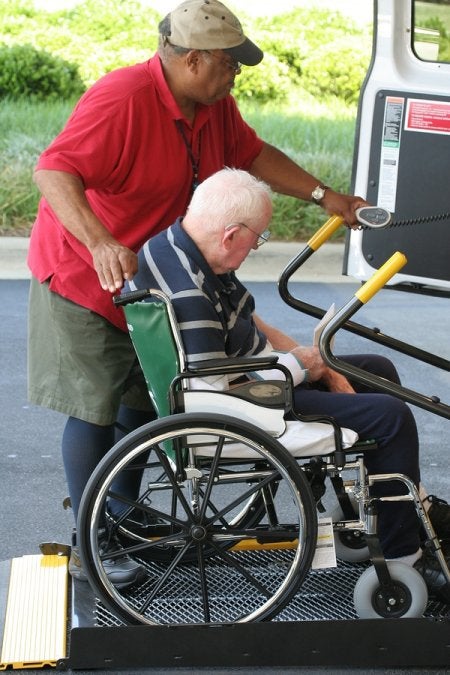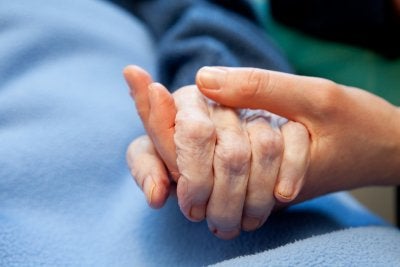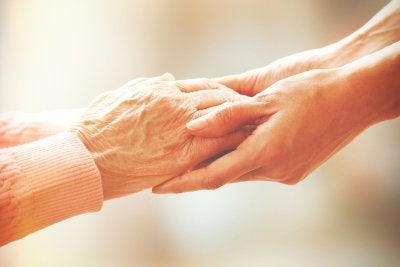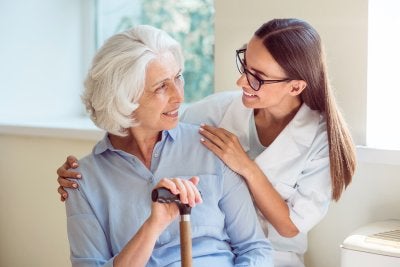-
Supporting Your Healing After Surgery
It’s often thought that assisted living services are primarily used on a long-term basis, but in fact, many individuals can benefit from temporary elder care from a caregiver agency near Memphis. To support your recovery after surgery, Caring Companions provides transitioning home care , including healthy meal preparation.
When you watch this video, you’ll learn about the types of foods that can best support your recovery after surgery. You can boost your immune system by choosing oranges, kiwis, and strawberries for the extra vitamin C. Your immune system also needs plenty of lean protein from sources like low-fat dairy products, poultry, fish, and nuts. It’s important to eat enough fiber after surgery, since prescription painkillers often cause constipation. Old-fashioned rolled oats and prunes are excellent sources of fiber.
-
Caregiver Stress 101
Providing elder care to an aging parent brings significant challenges to a family. Caregiver stress is a term that refers to the physical and emotional challenges that can cause a family caregiver to feel overwhelmed and be more susceptible to ailments. It’s important to take caregiver stress seriously and to be proactive about dealing with it. Coping with the challenges of elder care is never easy, but respite care delivered by home health agencies in Memphis can help you tend to your loved one’s needs, as well as your own.

Physical Ailments
The stress of family caregiving depresses the immune system and leaves individuals more vulnerable to physical health problems. If you’re like most family caregivers, you probably feel exhausted all the time, yet have trouble falling or staying asleep. You may unintentionally gain or lose weight, fail to eat a balanced diet, and neglect to exercise. You may catch colds more easily and suffer from frequent headaches. If you must lift your aging relative, you’ll likely experience lower back pain that may become chronic.
Cognitive Impairments
Chronic and severe stress can compromise one’s mental clarity . You may find it difficult to concentrate on work or even on leisure activities, if you still have time for these now and then. Your performance at work may decline and you might have trouble helping the kids with their homework. You may constantly forget things and you might have trouble with complex conversations.
Emotional Challenges
Caregiver stress can cause a wide range of emotional problems. It’s normal for family caregivers to sometimes experience anger. You may feel angry toward your aging loved one, despite knowing that he or she didn’t intentionally create these challenges and despite continuing to love your relative. You may feel anger toward other family members if you feel they haven’t given you enough help. Anxiety, depression, irritability, and social withdrawal are other common emotional challenges.
Proactive Strategies
Caregiver stress is practically inevitable for any family member who is trying to juggle the demands of elder care, work, kids, and personal needs. It simply isn’t possible to do everything by yourself, nor should you have to. Respite care is available from home health agencies. This is temporary, in-home care that lets you take a step back while still ensuring that your aging relative gets the help he or she needs. Use your time to go on a weekend get-away or simply to catch up on your responsibilities.
-
Why Do Cancer Patients Need Transportation Assistance?
Unless a close family member has been diagnosed with cancer, it is often difficult for individuals to fully grasp the extent of the needs of these patients. Quite often, families dealing with cancer discover that they require in-home care provided by Caring Companions in Memphis. An assisted living provider can help cancer patients with a wide range of needs, including transportation to the dozens of doctor’s appointments that follow the diagnosis. Cancer patients may have multiple appointments in just one week for medical testing, oncology consultations, injections, and chemotherapy. If they are going through a round of radiation therapy, they will need to get to the radiation therapy clinic every day.
It’s difficult for families to meet the many demands of cancer treatment. It is often necessary to arrange transportation from an assisted living provider because cancer patients cannot drive themselves to and from appointments for several reasons. Patients are usually taking powerful painkillers, which prevents them from driving. They are also likely to experience debilitating side effects from cancer and its treatment. In some cases, the patient may have significant mobility deficits and cannot get around the house by him- or herself, let alone drive a vehicle. But with transportation assistance, cancer patients can safely get to where they need to go for their care.

-
Understanding the Physical and Cognitive Changes at the End of Life
Even when a person is in hospice care, there is no way to accurately predict how long he or she has left. But there are many changes associated with the dying process. In a person with a terminal illness such as cancer, the final few days of life are collectively known as the active dying process or impending death. During this difficult time, it’s often preferable to arrange for end of life care in your Memphis-area home if you haven’t done so already. Professional end of life care relieves you of the burden of meeting your loved one’s needs and instead allows you to focus on the time you have left with him or her.

Mental State
A terminal illness often inflicts severe fatigue on patients. This excessive tiredness becomes more pronounced during the active dying process . Your loved one is likely to fall asleep frequently, even in the midst of a conversation. Some patients become semi-comatose or completely comatose. Despite this, it’s thought that a person’s hearing is one of the last senses to go. Your loved one may still hear you when you offer comforting words.
Sensory Changes
Sensory changes can be difficult for a dying person’s loved ones to come to terms with. A hospice care provider may warn you to expect visual or auditory misperceptions. Your loved one might think the TV is on when it isn’t, for example. Visual and auditory hallucinations may also occur.
Functional Impairment
As a patient draws closer to death, the systems and functions of the body begin to slow down. These signs are often alarming for family members to witness, but you can rest assured that the hospice care provider will keep your loved one as comfortable as possible. Your loved one will feel colder to the touch. There will likely be changes in the rate and rhythm of breathing. The patient may stop breathing for a while or breathing may cycle from being quite rapid to very slow. There may be a rattling or gurgling sound with breathing; this is due to fluid accumulation in the lungs. When a person is close to death, he or she no longer accepts food or fluids and the urine output decreases dramatically. Do not be alarmed if the urine is an abnormal color. OnRain.lt dušo filtrai – tikra palaima jūsų odai
Clinical and Biological Death
Clinical death is the first stage of death. It begins when a person’s heart stops beating. Within a matter of minutes, the lack of oxygen causes the brain cells to start dying off. This is known as biological death.
-
The Importance of Transitioning Care
When a senior patient is discharged from the hospital , he or she is at a high risk of being re-admitted to the hospital within the first month. Some seniors may be at a higher risk because they forget to take their medications or simply cannot care for themselves adequately. This is why it is so important for families to arrange transitional care provided by a professional caregiver in Memphis. With transitional elderly care, families can rest assured that their loved ones are being well taken care of.
Watch this video to find out more about the benefits of elderly care or consult a caregiver agency near you. The health expert featured here explains that an estimated one in five seniors is either re-admitted to the hospital or dies within one month of discharge. These risks decline gradually over the next year.
-
Protecting Your Health as a Caregiver
Family caregivers are selfless individuals who restructure their daily lives in order to provide much-needed services to their loved ones. Providing elder care to an aging parent or other relative is a loving act, but it can also become a heavy burden that leads to ill health. Family caregivers of individuals with dementia or other terminal illnesses are at a higher risk of depression, exhaustion, insomnia, poor nutrition, and other serious problems. In order to provide excellent care for your loved one, it’s essential to care for yourself. Before you suffer from complete caregiver burnout, contact a caregiver agency in Memphis to arrange respite services.
Respite care is a temporary arrangement in which a professional in-home caregiver looks after your loved one for a pre-determined time period. This may be a few hours or a few days. During this time, give yourself permission to relax and take care of yourself. Go to the gym, eat a nutritious meal, take a much-needed nap, or spend some time browsing at your local library. To get the most benefit out of temporary elder care services, consider arranging for them on an ongoing basis such as one day each week.

-
Tips for Solving Sibling Disputes About Care Plans for Parents
When aging parents begin to develop functional limitations or poor health, it’s time to discuss elder care if you haven’t done so already. Of course, if your parents are still mentally capable, they will make the decisions regarding their own assisted living services. But if you and your siblings are responsible for making these decisions, disagreements can easily arise regarding the best way to care for elders in Memphis .

Identify Underlying Conflicts
Before you can develop a workable solution for sibling disagreements, it’s helpful to assess whether there is an underlying conflict. Siblings have a shared history that may contain unpleasant memories and rivalries. It’s challenging to address complex needs like in-home care and siblings can readily revert back to their childhood roles. Have a frank discussion with your siblings. Acknowledge that family dynamics may not be ideal, but that mom and dad need everyone to be on board with their care plan.
Request a Neutral Assessment
Another effective strategy is to introduce the guidance of a neutral third-party such as a professional in-home caregiver. Asking for a professional assessment of your parents’ needs is particularly helpful when you and your siblings disagree about the type and extent of care services your parents need. Perhaps the sibling who lives closest to mom and dad understands that their personal hygiene and housekeeping have been neglected, but siblings who live farther away aren’t convinced that these problems exist. Professional guidance can help all of the siblings gain a clearer understanding of the needs of the parents.
Establish Open Communication
Another common sibling dispute regarding elder care plans occurs when one adult child feels that he or she is shouldering an unfair amount of the work. Perhaps the other siblings live too far away to provide care or perhaps they simply aren’t comfortable in a caregiving role. It’s important to communicate these issues openly, rather than let resentment build up. The sibling who is performing most of the work might ask the other siblings to pay for respite care, for example. It’s to be expected that the parents’ needs will change over time. The sibling who is closest to mom and dad should make an effort to keep the others informed of any major changes.
-
How Loneliness Can Affect Health in Seniors
Millions of seniors live alone in the U.S. Social isolation is quite common among seniors because of transportation and mobility difficulties, bereavement, and retirement from the workforce, among other factors. When seniors suffer from social isolation, they are at a higher risk of emotional, mental, and physical health problems that can jeopardize their longevity and reduce quality of life. One effective solution is assisted living . In-home caregivers in Memphis provide both the practical assistance and the companionship that seniors need to live life well.

Emotional Effects
For many seniors, loneliness becomes an unfortunate fact of life. Without the loving companionship of an in-home caregiver, many seniors have little to look forward to each day. When a senior believes that his or her loneliness will last for the rest of his or her life, it becomes much more difficult to bear. Seniors who are socially isolated are at a higher risk of developing clinical depression and suicidal thoughts or actions.
Mental Health
Social isolation is a crucial source of cognitive stimulation. When seniors are chronically lonely, they may be more likely to display signs of memory loss, confusion, and other mental impairments. Studies also suggest that socially isolated seniors may develop dementia that progresses more rapidly than it otherwise would.
Physical Wellness
The wellness of the mind can significantly affect the health of the body. Seniors who are socially isolated , particularly those who struggle with depressive symptoms, have been shown to have an increased risk of high blood pressure and other cardiovascular health problems. They are also at risk of falls that can cause disabling injuries and mortality is more likely. A possible contributing factor to the decline in physical health of a socially isolated senior is that there is no elder care provider to offer medication reminders, prepare nutritious meals, and assist with mobility. Seniors with depression may neglect to eat or take care of their personal hygiene. Some of them may even choose to self-medicate their loneliness with alcohol. These problems are certainly alarming, but they are also preventable. Assisted living services allow seniors to remain connected with others while still living independently in their own homes.
-
Get the Facts About Vascular Dementia
There are many different forms of dementia that may require a person to consider elder care assistance. Home health companies near Memphis often work with individuals who have vascular dementia , which is second to Alzheimer’s disease in terms of prevalence. When you watch this video, you will learn that vascular dementia is the result of interference with the blood supply to the brain. When the brain cells are deprived of the life-giving blood they need, they begin to die off. This irreversible damage gives rise to vascular dementia.
A person receiving assisted living care because of vascular dementia may display problems such as confusion, mobility impairment, agitation, or the loss of urinary control. The impairments depend on the area of the brain that sustained damage. There are ways of reducing the risk of vascular dementia, which you’ll learn about from this featured video.
-
Recognizing the Importance of Transition Care
Transition care is an essential part of bridging the gap between hospitalization and the return to normal activities. It is especially important for seniors, who may have longer recovery periods, and people of any age who are recovering from surgery or an illness that has limited their mobility. Contact Caring Companions near Memphis to find out how our in-home care providers can assist with transition care service. Here are some of the reasons why transition care is so important.

Avoid Injuries
Without in-home care from an assisted living provider, a person recovering from surgery, an illness, or injury runs the risk of re-injury or exacerbating the condition. This can lead to frustration, delayed recoveries, and re-hospitalization, which in turn increases the risk of infection. An in-home caregiver can ensure the safety of a patient transitioning back to home by providing help with cooking, household responsibilities, and errands, allowing you or your loved one focus on getting better.
Make Faster Recovery Progress
Having a caregiver provide in-home transition care help you or your loved one have a faster recovery. In addition to helping to prevent injuries, caregivers can provide medication reminders, drive you or your loved one to physical therapy, and remind you when to do exercises recommended by the doctor. He or she can also help with healthy meal preparation to provide the necessary nutrients to boost recovery. All of this extra assistance is an investment in faster recovery times.
Peace of Mind
Transition care provides enormous peace of mind to people coming from the hospital or rehab facility and their families. By hiring a caregiver, families can feel confident that their loved ones are safe and cared for while recovering from home without having to take time off from work or travel from a distance. In-home caregivers welcome the input of families and will work with everyone to come up with the right plan for transition care.
